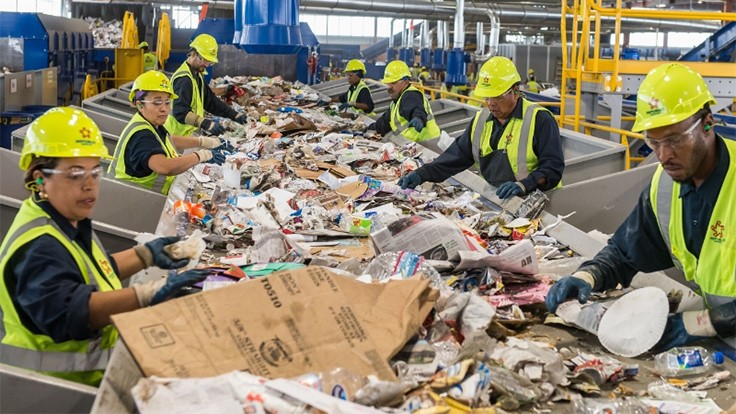
Recycling can have a dramatic impact on tree cutting.
If 45 percent of our paper came from recycled fiber, we could save 2.5 billion cubic feet of timber (and millions of trees) by the year 2040.
Recycling will help reduce waste
Moreover, for every ton of recycled paper we use instead of virgin paper, we save 4,100 kilowatt hours of energy (enough to power the average home for six hours), conserve 7,000 gallons of water, and keep 60 pounds of pollutants out of the air.
Using virgin materials, as The Times advocates, squanders energy that could be conserved by recycling. Who in their right mind would want to continue paying high energy bills when it’s possible to reduce energy costs by up to 80 percent?
Even factoring in the cost of collection and processing, recycled paper, compared to virgin-wood paper, reduces energy consumption by anywhere from 46 percent (for writing paper) to 61 percent (for newsprint) and 80 percent (for boxboard and liner board).
Perhaps the most egregious omission in Tierney’s analysis of our garbage situation is the fact that Americans are addicted to overconsumption. The article neatly sidesteps the issue, taking for granted the idea that more is better.
What’s really being wasted in America is the well-being of the next generation and those that follow. By crassly consuming resources and leaving behind waste, we’re dumping the cost of restoration on them. The measure of our humanity is the degree to which we conserve Earth’s bounties for those who follow in our footsteps, while sparing them the burden of cleaning up our messes.
This whining gets to the heart of why The Times would run such a sloppy piece–out of sheer desperation.
Americans and recycling
With up to 23 million North Americans now surfing the World Wide Web–where superb up-to-the-minute news and features are readily available–The Times and other newspapers stand to lose readership and clout (not to mention advertisers.
But for The Times to blame recycling laws for its inability to maintain a competitive edge in a fast-changing field is like Detroit auto makers crying that fuel-efficiency requirements keep them from competing effectively against the Japanese.
The fact is The Times, like auto makers and other industries, needs to find more efficient ways of producing its product, rather than demanding a licence to destroy the environment in pursuit of profit.
This is off-topic for most of you, but we are working on a project here in Reno to promote recycling and waste prevention to airlines serving the Reno area. In partnership with a local Reno dumpster rental company, we hope to be able to accomplish a lot when it comes to reduce wastage and junk creation in Nevada.
Does anyone have any stories they’d like to share about a specific airline’s recycling program? We are interested in both positive and negative stories. Also, we are interested in hearing about which airports have the most comprehensive recycling programs in place in a passenger terminal. For instance, at Logan Airport in Boston, you can recycle newspapers and cans and bottles.
In Denver, you can recycle newspapers. What about other cities?
Canadian Airlines started a recycling program 12 years ago. The first airline in the world to do onboard recycling. Today Canadian Airlines recycles aluminum cans, plastic water bottles, wine bottles, newspapers and magazines. Old pillows and blankets are distributed to charities and worn out seat covers are given to animal shelters.
At CP maintenance bases, scrap metal, oil and wood among other items, are reused and recycled. At office workplaces, paper, cardboard, ID and travel cards, laser cartridges, and microfilm are also recycled. For more information contact the Canadian Airlines Recycling Committee.
Canadian Airlines also has a program to reduce the quantity and the different types of chemicals used. Many other ideas have been put to work at different maintenance shops in regard recycling different materials, solids, liquids, batteries, etc. Request copies of both articles (recycling & reducing chemicals) printed in the last Canadian Flyer Newspaper.
